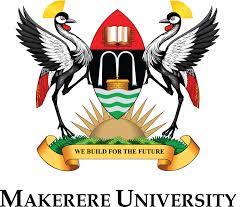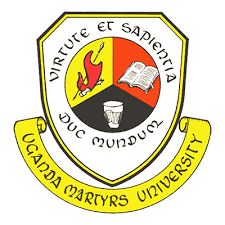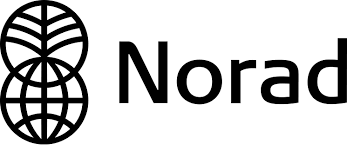Announcements
 |
 |
 |
 |
 |
 |
Masters Scholarships tenable at the University of Dar es Salaam
Environmental Risk Management under Increasing Extremes and Uncertainty (MERIT) Project
The University of Dar es Salaam, which is a partner institution in the MERIT research project, is pleased to invite interested and qualified candidates to apply for 2 Masters Scholarships under the MERIT research project.
The MERIT research project
The objective of the Environmental Risk Management under Extremes and Uncertainty (MERIT) project is to strengthen the capacity of the University of Dar es salaam to provide high quality education, research and outreach in the field of environmental risk and extremes that meet labour market demands, supports sustainable national socio-economic development and achievement of Sustainable Development Goals. MERIT is a partnership of five universities; Norwegian University of Science and Technology (Norway), Makerere University (Uganda), Uganda Marty’s University (Uganda), University of Dar es Salaam (Tanzania) and Haramaya University (Ethiopia). The regional level project responds to knowledge and capacity gaps with respect to environmental risk, increasing extremes and uncertainty linked to climate change and changing demographic and socio-economic conditions. The fundamental challenge that the MERIT partnership seeks to address is to identify sustainable development paths for communities and ecosystems under increasing environmental risk, uncertainties and extremes. The intended development impact is to provide East African countries with co-created new knowledge and tools that help in propelling the resilience agenda and realization of the UN SDGs and Sendai Framework for Disaster Risk Reduction (2015-2030). The project is organized into four interrelated Clusters namely:
Cluster I – Biophysical Systems and Nature-Based Solutions
This cluster is aimed at a better understanding of natural hazard processes under uncertainties in the socio-ecological systems of Tanzania. Prevalent hazards like landslides, floods, drought will be studied at spatially explicit scales. States and connectivity of biophysical systems covering elements like soils, geology, geomorphology, hydrology, vegetation dynamics, climatic patterns and climate change and land cover will be addressed. It will address the biogeochemistry and feedbacks under current and future climatic conditions. We will also test suitable Nature-Based Solutions (NBS) packages as potential risk mitigation measures. Experimental trials and spatial modelling will be the main methods used.
Research Study for the solicited 1 Masters student at UDSM will focus on Cluster I issues.
Research Cluster II – Socio-Economic/cultural System
Cluster II will address the vulnerability component of risk covering social institutions, livelihood strategies and asset bases and adaptation to the risk and climate change stress. Gender issues, social inclusion, networks including state and non-state actors will be tackled. Community resilience/Hazard management at local level taking into consideration constructs and contexts. Social surveys, Agent-Based Modelling (ABM) qualitative techniques will be the main methods.
Research Cluster III – Risk Governance and policy
Cluster III will interrogate governance and policy arrangements that either constrain or propel effective risk management. Institutional and policy frameworks for environmental risk and climate change governance will be tackled. Issues of legal frameworks, institutional mandates, service delivery structures, state and non-state actors at national and local government levels will be explored including interactions between national and lower governance scales. Similar methods as in Cluster II will be used.
Research Cluster IV - Emerging digital technologies and tools for risk management.
This cluster will cover a range of new and evolving digital technologies on how they can be harnessed and optimized for risk management at the society level. It will entail advances in earth observation, remote sensing and GIS for mapping climate change and environmental risk. Under this cluster, we will interrogate the potential of citizens’ science to improve resilience. Community-level sensor for geohazards monitoring, digital telephone apps such as i-RAIN (http://irain.eng.uci.edu) for sensing insitu rainfall conditions in real-time on the mobile phone, social media will be covered under this cluster. We will assess the potential use of a variety of digital tools for early warning tailored to specific hazards in the communities.
Research Study for solicited 1 Masters student at UDSM will focus on cluster IV issues.
Priority Study Sites in Tanzania
Research sites will be highland and dryland landscapes in Simanjiro, Mbulu and Babati Rural districts in Manyara region and Kondoa district in Dodoma region, which are considered to be at high risk to climate change risks and disasters.
General conditions for the PhD and Masters scholarships:
- The positions are fully funded, encompassing stipend and research allowance as per UDSM postgraduate studies rates.
- Successful Masters candidates will be enrolled at the Institute of Resource Assessment (IRA) to pursue MSc. Natural Resource Assessment and Management, or MSc. Climate Change and Sustainable Development.
- The duration of Masters scholarship is 2 years respectively. The scholarships will start in November 2023.
- The Masters students are expected to undertake fieldwork in Dar es Salaam and Dodoma Cities at the national level, and Manyara and Dodoma regions in the selected study LGAs
- The Masters students are expected to fully participate in MERIT project activities; as well as adhere to UDSM Postgraduate studies regulations.
Eligibility criteria
- A Bachelor’s degree in Environmental management, Climate change, Meteorology, Forestry, Wildlife, Geography, or another relevant field
- Be highly motivated to develop an academic career and to pursue a full-time Masters Scholarship.
- Be willing to conduct fieldwork in rural district councils/local government authorities of the Manyara and Dodoma regions.
- Be willing to travel and actively participate in the MERIT project activities.
- Possess good writing and communication skills.
- Be a constructive and engaged team worker.
- Possession of Admission letter regarding Masters in Natural Resources Assessment and Management (NARAM) and Masters in Climate Change and Sustainable Development (CC & SD) will be added advantage.
- Females are highly encouraged to apply.
Application process
Submission of the application for Masters scholarship should be accompanied by the following documents:
- A detailed CV stating the applicant’s educational and professional history
- Copies of academic certificates and transcripts
- An electronic copy of the applicant’s relevant publications
- Contact details of two references
- If possible, an admission letter
- Motivation or statement of purpose for pursuing Postgraduate studies
The application
Applications should be sent by email with the subject titles ‘MERIT Masters scholarship application’ to the Director, Institute of Resource Assessment (ira@udsm.ac.tz) and copy to Prof. Joel Nobert (njoelk@yahoo.com and nobert@udsm.ac.tz). For access to a detailed MERIT research programme description and more information about the Masters call, please contact Prof. Joel Nobert.
Incomplete applications will not be considered. The assessment committee will consist of a panel of UDSM and MERIT researchers.
Closing date:
The deadline for submitting the application is 20th October 2023 at 1600hrs (East African Time).
ISSUED ON 3ND OCTOBER 2023.
Other Announcements
Sun, 01.Dec.2024 : MSc. Research Completion Scholarship 2024Thu, 25.Jul.2024 : CALL FOR MSC AND PHD SCHOLARSHIPS UNDER CREATE-GREENAFRICA PROJECT
Wed, 03.Apr.2024 : PHD SCHOLARSHIP ANNOUNCEMENT FOR GENDERED ENCOUNTERS IN CLIMATE CHANGE ADAPTATION
Fri, 22.Sep.2023 : TANGAZO LA KUITWA KWENYE USAILI WA MAHOJIANO NAFASI YA AFISA HESABU NA DEREVA
Tue, 12.Sep.2023 : CONGRATULATIONS PROF. PIUS ZEBHE YANDA

